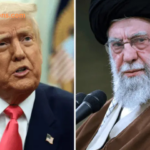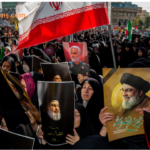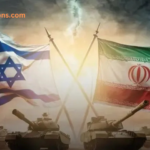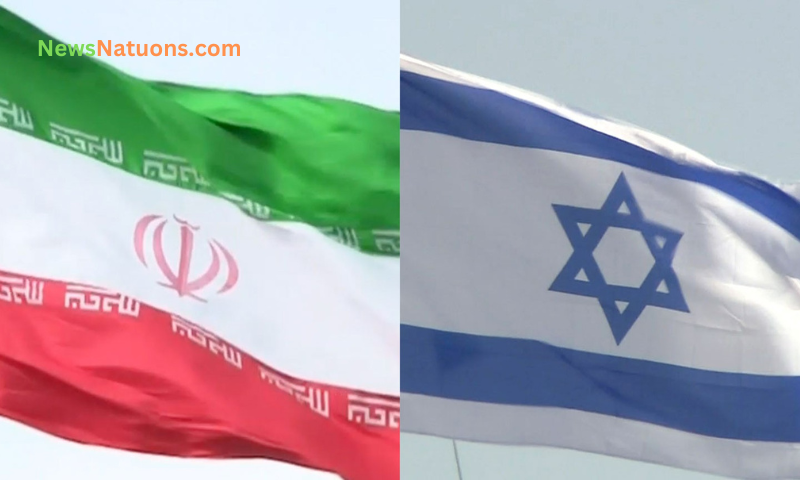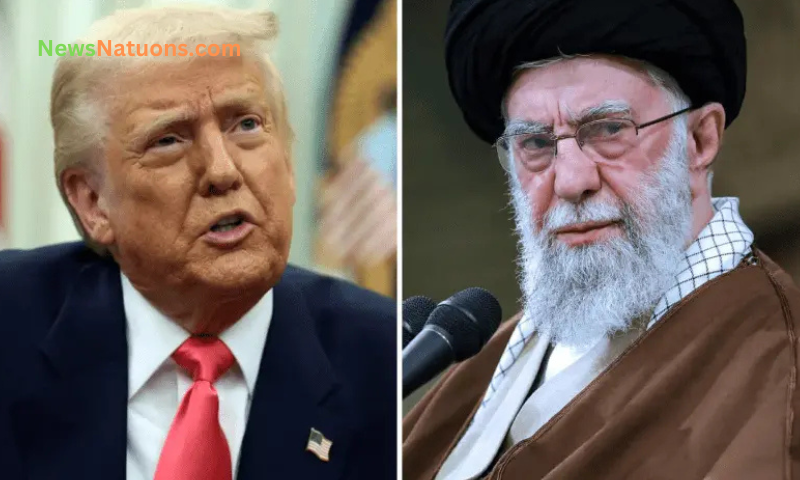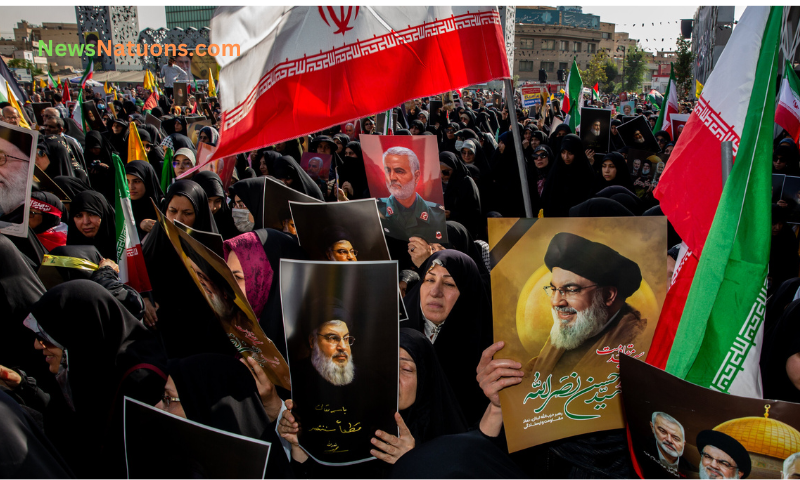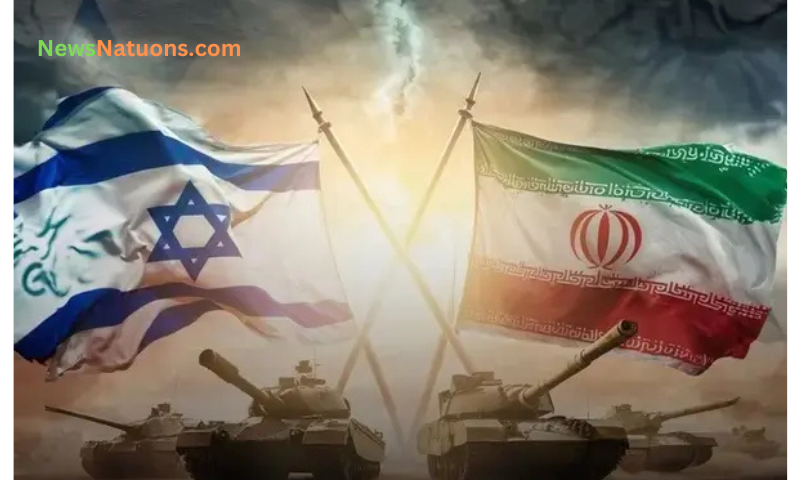The geopolitical landscape of the Middle East is once again trembling under the weight of escalating conflict, this time involving two of the most strategically significant countries in the region—Iran and Israel. The timing of this conflict couldn’t be more alarming. Just two days before the sixth round of nuclear negotiations between Iran and the United States was scheduled to begin, Israel launched a powerful military strike on Iranian targets, sending shockwaves across the globe. The move has sparked not only regional instability but a flurry of questions regarding the future of diplomacy and peace in the Middle East.
The Timing: Diplomatic Talks vs. Military Action
The fact that Israel chose to attack just days before nuclear talks with the U.S. indicates a clear message: Israel no longer trusts the diplomatic route to stop Iran’s nuclear ambitions. This action implies that Israel sees no credible alternative other than military intervention. Israeli officials have repeatedly claimed that Iran is close to building a nuclear bomb. According to the International Atomic Energy Agency (IAEA), Iran currently holds uranium enriched to 60% purity. While this is below the 90% level required for nuclear weapons, experts believe that Iran could reach this threshold within weeks if it makes a political decision to do so.
Pre-Emptive Strike or Provocation?
Israel’s military strategy seems to follow the logic of a pre-emptive strike—a preventive action taken to neutralize an imminent threat. By attacking Iran now, Israeli leaders argue, they are preventing a much more dangerous future in which Iran becomes a nuclear-armed state. This view is bolstered by Israeli intelligence reports that suggest “time has run out.” However, from Iran’s perspective, the attack is nothing short of provocation. Tehran has described the assault as an act of aggression and warned of severe retaliation.
Rising Risk of a Broader Conflict
The regional implications of this conflict are vast. If Iran chooses to retaliate forcefully, it could lead to a full-scale war, dragging in not only Middle Eastern powers but possibly global players like the United States, Russia, and even NATO. Already, Iranian proxies in Lebanon, Syria, and Iraq have signaled possible support for Iran. Meanwhile, Israel has declared that such military operations will continue until Iran’s military capabilities are completely destroyed. This level of commitment suggests that we may be on the brink of a prolonged and highly destructive conflict.
Nuclear Fears Heighten Global Concern
The world is watching this standoff with growing concern, especially because it involves the potential use or development of nuclear weapons. Many countries, including members of the European Union and the United Nations, have called for calm and urged both parties to return to the negotiating table. Yet, with every new strike and counter-threat, the window for diplomacy appears to shrink. If this conflict spirals further, it could undermine global efforts toward non-proliferation and nuclear disarmament.
What About Pakistan?
One of the most thought-provoking questions arising from this crisis is whether Israel could adopt a similar stance against other nuclear-capable Muslim countries, particularly Pakistan. Although Pakistan has never shown hostility toward Israel and maintains no diplomatic relations, its status as a nuclear power in a volatile region may raise alarms in Israeli defense circles. Could Israel, under the doctrine of “existential threat,” target Pakistan in the future, especially if regional alliances shift? While there is currently no evidence to support such a plan, the logic behind Israel’s attack on Iran leaves such possibilities open to speculation.
Implications for Global Diplomacy
This conflict challenges the credibility of international diplomatic institutions. The fact that a country would attack another on the eve of high-level negotiations sets a dangerous precedent. It raises questions about the effectiveness of diplomacy when one party can resort to military force at will. For global powers, especially the United States, this puts them in a tight spot—balancing support for Israel while trying to avoid being dragged into a broader war.
Economic and Humanitarian Consequences
Beyond politics and military strategy, the human cost of such a conflict could be devastating. A war between Iran and Israel could destabilize global oil markets, cause mass displacement, and result in thousands of civilian casualties. The economies of not only the region but also of major trade partners could suffer. In a world already dealing with inflation, war could worsen economic inequality and political instability worldwide.
The Road Ahead
At this critical moment, international diplomacy is needed more than ever. There must be a renewed effort from world powers to mediate peace and prevent further escalation. Countries like China, Russia, and the U.S. must work together despite their differences to ensure that nuclear conflict is avoided at all costs. The Iran-Israel situation is no longer a regional issue—it has become a global crisis with far-reaching consequences.
مشرق وسطیٰ کی جغرافیائی سیاست ایک بار پھر شدید تناؤ کا شکار ہے، اور اس بار محاذ پر ہیں ایران اور اسرائیل—دو ایسے ممالک جو خطے میں سب سے زیادہ اسٹریٹجک اہمیت رکھتے ہیں۔ یہ کشیدگی ایسے وقت پر شدت اختیار کر گئی ہے جب ایران اور امریکہ کے درمیان جوہری مذاکرات کا چھٹا دور شروع ہونے والا تھا۔ اس سے صرف دو دن قبل اسرائیل کی جانب سے ایران پر زبردست حملہ کیا گیا، جس نے عالمی سطح پر کئی سوالات کو جنم دے دیا ہے۔
مذاکرات اور عسکری کارروائی: وقت کا تعین اہم
اسرائیل کا حملہ اس وقت پر کیا جانا، جب ایران اور امریکہ کے درمیان مذاکرات ہونے والے تھے، یہ واضح پیغام دیتا ہے کہ اسرائیل اب سفارتی کوششوں پر مکمل بھروسہ نہیں کر رہا۔ اسرائیل کا ماننا ہے کہ ایران جوہری بم بنانے کے قریب ہے، اور اب وقت ختم ہو چکا ہے۔ بین الاقوامی جوہری توانائی ایجنسی کے مطابق، ایران کے پاس 60 فیصد افزودہ یورینیم موجود ہے جبکہ جوہری ہتھیار کے لیے 90 فیصد درکار ہے۔ ماہرین کا کہنا ہے کہ اگر ایران سیاسی فیصلہ کرے تو وہ چند ہفتوں میں جوہری ہتھیار تیار کر سکتا ہے۔
پیشگی حملہ یا اشتعال انگیزی؟
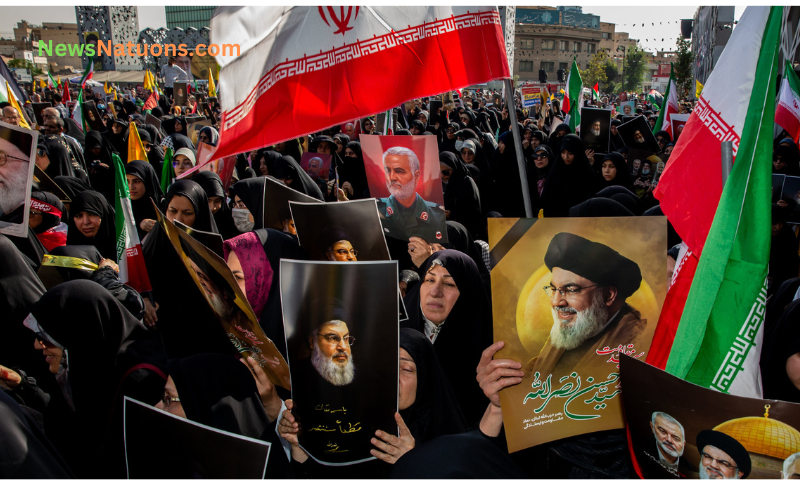
اسرائیل کی یہ کارروائی “pre-emptive strike” کی مثال ہے، جس کا مقصد ممکنہ خطرے کو پہلے ہی ختم کرنا ہے۔ اسرائیل کا دعویٰ ہے کہ وہ ایران کو جوہری ریاست بننے سے پہلے روکنا چاہتا ہے۔ دوسری جانب، ایران نے اس حملے کو کھلی جارحیت قرار دیا ہے اور شدید ردعمل کی دھمکی دی ہے۔
ایک وسیع تر جنگ کا خدشہ
اس حملے کے نتیجے میں پورے خطے میں جنگ کے بادل منڈلانے لگے ہیں۔ اگر ایران نے بھرپور جوابی کارروائی کی تو مشرق وسطیٰ میں بڑی جنگ چھڑ سکتی ہے، جس میں امریکہ، روس، اور نیٹو جیسی عالمی طاقتیں بھی ملوث ہو سکتی ہیں۔ ایران کے حامی گروپس جیسے حزب اللہ، شامی ملیشیا اور عراقی تنظیمیں بھی سرگرم ہو سکتی ہیں۔ اسرائیل نے واضح کیا ہے کہ یہ حملے اس وقت تک جاری رہیں گے جب تک ایران کی عسکری طاقت ختم نہ ہو جائے۔
جوہری خطرات اور عالمی تشویش
یہ تنازع اس لیے بھی خطرناک ہے کیونکہ اس میں جوہری ہتھیاروں کا ذکر شامل ہے۔ یورپی یونین اور اقوام متحدہ نے فوری طور پر فریقین سے صبر و تحمل کی اپیل کی ہے، لیکن ہر نئے حملے اور دھمکی کے ساتھ سفارتی راستہ تنگ ہوتا جا رہا ہے۔ یہ صورت حال عالمی سطح پر عدم پھیلاؤ (non-proliferation) کی کوششوں کو بھی نقصان پہنچا سکتی ہے۔
کیا پاکستان بھی خطرے میں ہے؟
اس تناظر میں ایک سوال یہ بھی پیدا ہوتا ہے کہ کیا اسرائیل مستقبل میں پاکستان کو بھی ایسا ہی خطرہ سمجھ سکتا ہے؟ اگرچہ پاکستان نے کبھی اسرائیل کے خلاف کوئی جارحانہ رویہ اختیار نہیں کیا، اور دونوں کے درمیان سفارتی تعلقات بھی نہیں ہیں، لیکن بطور ایٹمی طاقت، پاکستان اسرائیلی دفاعی پالیسی کے دائرے سے باہر نہیں۔ اگر اسرائیل ایران کو محض شبے کی بنیاد پر “وجودی خطرہ” مانتا ہے، تو کیا وہ یہی منطق کسی اور مسلم ایٹمی ریاست پر بھی لاگو کر سکتا ہے؟
عالمی سفارتکاری کا امتحان
یہ تنازعہ عالمی سفارتی اداروں کے لیے بھی ایک امتحان بن چکا ہے۔ اسرائیل کا اس طرح مذاکرات سے پہلے فوجی کارروائی کرنا بین الاقوامی سفارتکاری پر سوالیہ نشان ہے۔ امریکہ جیسے ممالک کے لیے یہ صورتحال خاصی پیچیدہ ہو گئی ہے، جنہیں اسرائیل کی حمایت بھی کرنی ہے اور جنگ سے بچنے کے لیے ثالثی بھی کرنی ہے۔
انسانی اور معاشی اثرات
سیاسی اور عسکری پہلوؤں سے ہٹ کر اس جنگ کا انسانی اور معاشی نقصان بہت زیادہ ہو سکتا ہے۔ مشرق وسطیٰ میں جنگ سے تیل کی قیمتیں بڑھ سکتی ہیں، لوگ بے گھر ہو سکتے ہیں، اور ہزاروں معصوم جانیں ضائع ہو سکتی ہیں۔ عالمی معیشت پر بھی اس کے اثرات مرتب ہوں گے، خاص طور پر ان ممالک پر جو پہلے ہی مہنگائی سے متاثر ہیں۔
آگے کا راستہ
اب عالمی برادری پر لازم ہے کہ وہ فوری اور مؤثر اقدامات کرے۔ چین، روس، امریکہ جیسے ممالک کو اپنے اختلافات بھلا کر اس بحران کے خاتمے کے لیے متحد ہونا ہوگا۔ ایران اور اسرائیل کی کشیدگی اب صرف خطے کا مسئلہ نہیں، بلکہ ایک عالمی بحران بن چکی ہے جس کے اثرات پوری دنیا پر پڑ سکتے ہیں۔

